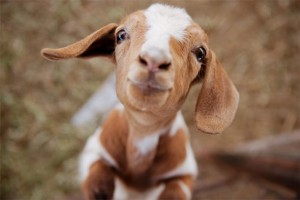
Sadly, the Oxford County Fair held in mid-September of this year ended with one child passing away and another becoming gravely ill due to E. coli infections that originated at a petting zoo. Thus far, the investigation has revealed that the fair operators did not follow the public health-related recommendations made after previous E. Coli outbreaks. Specifically, calves and other young animals at petting zoos, such as chickens, as well as any ill animals, pose a greater risk for transmitting enteric infections (infections of the intestinal tract) to humans.
Prevention
The Centers for Disease Control and Prevention provided the following guidelines in 2001 for petting zoo and other animal-interaction facilities in order to prevent infections like the E. Coli outbreak amongst children associated with farm visits:
- Visitors must be warned of the potential risk of transmission of pathogens from farm animals to humans, as well as preventative strategies. Children under five years of age, the elderly, pregnant women, and people with compromised immune systems are at higher risk for serious infections;
- Facility staff should be trained on these infection risks;
- Facilities should not allow contact with farm animals around food service or infant care. There should be a separate area where animals do not go—separated via clear methods such as double barriers—and interaction with animals should only occur in designated areas under close supervision;
- Special care should be taken with school-aged children;
- Hand-washing opportunities (not simply communal basins) must be provided for both children and adults in both the interaction and animal-free areas, which includes running water, soap, and disposable towels;
- Posted signs should emphasize the need to wash hands after touching animals/before eating and leaving the interaction area; and
- Certain activities (such as eating, carrying toys, etc.) should be prohibited in the interaction areas.
Facility Operators & Negligence
There are also several steps that facility operators should take in order to avoid negligently managing these facilities to breed and spread infection:
- Become familiar with the recommendations put together by the National Association of State Public Health Veterinarians Animal Contact Compendium Committee;
- Consult with veterinarians, state and local agencies in general on implementing these recommendations;
- Become more knowledgeable about the risks for disease and injury associated with animals in these types of facilities such that staff and visitors can also become educated about these issues;
- Develop (or obtain) training and educational materials pursuant to training staff; and
- Provide information to visitors in an easy-to-digest format.
Let Our Attorneys Help You
Personal injuries–such as an E. Coli outbreak like this–happen all the time simply because someone else was careless in what they did or how they acted. And the wrongdoer simply taking reasonable and common sense steps could have prevented many of these personal injuries.
The personal injury attorneys at Harrell & Nowak have helped many victims in New Orleans, Kenner, Metairie, and throughout Louisiana obtain financial compensation for their injuries. Our lawyers will work to ensure that your rights are protected and that you receive a fair recovery if your injury has been caused by some else not being responsible. Contact us today for a free consultation.
